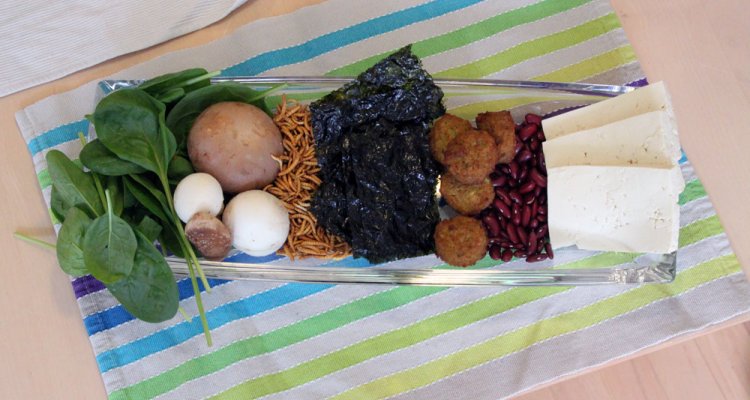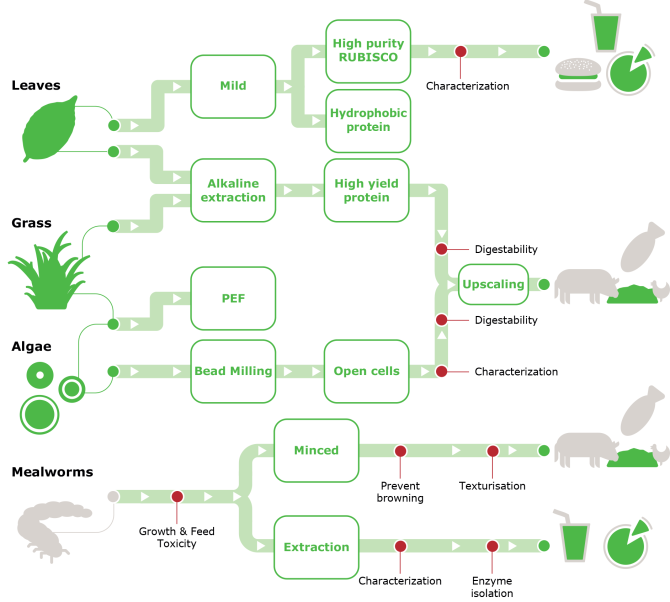
Project
More and Better Protein
Finalising project within protein innovation programme of EZ (Economic affairs) and STW (now TTW; NWO Domain Applied and Engineering Sciences)
STW Protein
Within the STW Protein Program, five sustainable protein technology projects have been progressing the last few years. These projects developed innovative methods to extract proteins from plant materials, microalgae and insects to help meet the increasing demand for food for humans and livestock. A total of fourteen companies are involved in the projects. With the start of the last project "more and better protein", the results of the past projects have been summarized, evaluated, and supplemented with new insights. This has led to a vision document that gives direction to future research in the field of protein and technology.
Protein purity and functionality
Much research from the past focused on obtaining pure protein, e.g. RUBISCO from green leaves or protein from potato juice. Such processes can be economically feasible if the protein produced has a specific functionality, which allows for use as a high-quality food ingredient. However, high purity is not always required to obtain a certain functionality. Subsequently, less intensive separation methods can be used. Fractionation can also lead to more complete use of biomass.
Biomass choice
When choosing a particular protein-recovery technology, biomass selection is the first requirement. Much research is being done on new biomass. However, the use of existing raw materials and residual flows can be the key to successful biorefinery in the near future. By building on existing processes and chains, fast(er) implementation is possible. In addition, existing streams have been selected previously and are already economically profitable, something that still has to be shown for new biomass.
Chain approach for economy and sustainability
In addition, it is also important to include the possibility of complete utilization of the raw material and closing cycles. These latter aspects can make or break economic feasibility and sustainability in a process. Efficient and effective use of protein and nitrogen, while maintaining biodiversity, is the most important development point for sustaining life on this earth.

Enlarge this image by clicking on it
The five initial projects
- Progress
Proteins from green sources for use in both food and fish feed, main applicant: prof.dr.ir. Harry Gruppen, contact person: dr.ir. Peter Wierenga. - In2Food
Production and valorisation of high quality proteins from insects, main applicant: prof.dr.ir. Tiny van Boekel, contact person: dr.ir. Catriona Lakemond - GreenProtein
Isolation of hydrophobic proteins from green plant materials, main applicant: prof.dr.ir. Remko Boom, contact person: prof.dr.ir. Atze Jan van der Goot - LEAP
Increasing the utilization of low value leaves by use of new protein extraction methods, main applicant: prof.dr.ir. Johan Sanders, contact person: dr.ir. Marieke Bruins - ALGAEPRO4YOU
Extraction and fractionation of functional proteins from microalgae for potential application in the feed of food industry, main applicant: dr.ir. Marian Vermuë, contact person: prof. dr. Michel Eppink